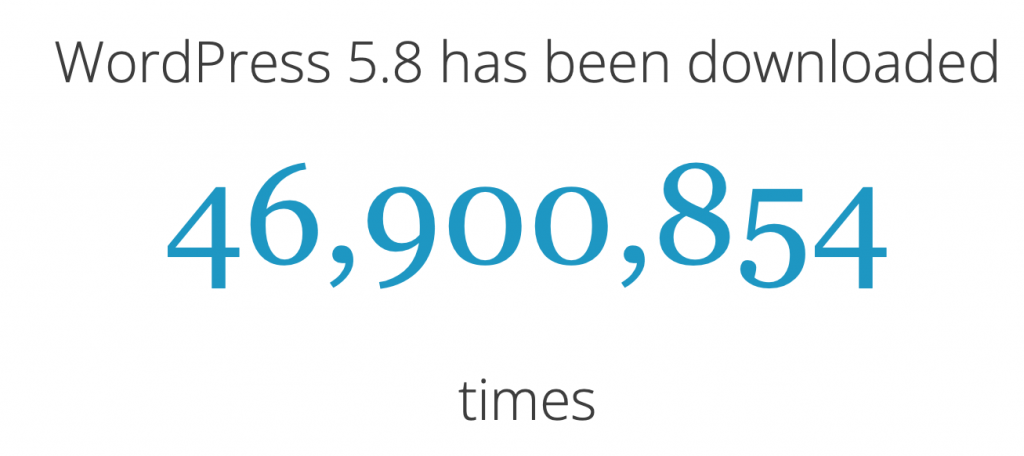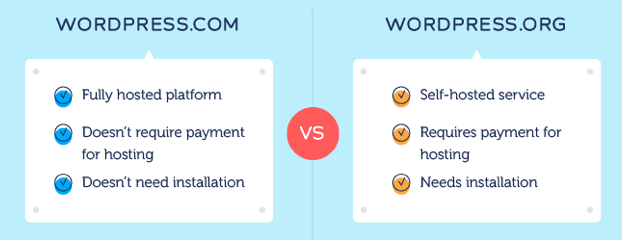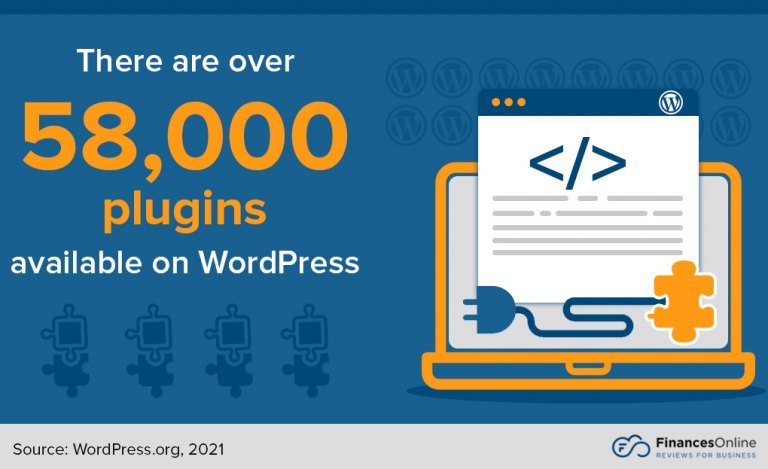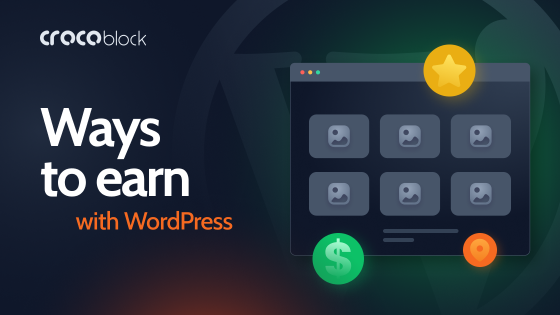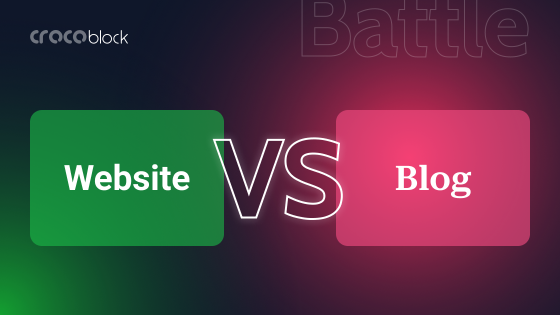This guide addresses some of the most common WordPress myths and shows why WordPress is an excellent choice for website construction.
Table of Contents
- Just for blogging
- Bad for eCommerce
- Free (and therefore undesirable)
- Offers no support
- Isn’t responsive
- WordPress is a pain to use
- WordPress plugins are a risk
- Plugins make SEO simple
- You should hide you’re using WordPress
- WordPress Project is not Scalable
- WordPress Site is Hard to Manage
- WordPress is Suitable Only for Beginners
- WordPress is Outdated
- All WordPress Sites Look the Same
- Pressing ahead
Today’s businesses benefit from multiple technologies: cloud storage, enterprise VoIP, and a quality website. Whether you’re a budding entrepreneur or a business supremo, you may be wondering how best to build one.
Over the last few years, WordPress has established itself as a reliable tool for website construction. As of 2021, WordPress powers 39.6 percent of the Internet, with companies like Sony, eBay, and Forbes using it for their sites.
With almost two decades of operation under its belt, WordPress has accrued a few misconceptions.
WordPress Is Just for Blogging
A common myth about WordPress is it’s just a blogging tool. WordPress began its life as a platform to blog on and still benefits from blogging’s continued popularity. Today, there are over 600 million blogs in the world across more than 1.7 billion websites.
However, WordPress has grown far beyond its initial form. Governments, businesses, and educational institutions use WordPress outsides of its typical blogging structure.
WordPress Is Bad for ECommerce
WordPress is sometimes presented as unsuitable for eCommerce sites. However, several eCommerce plugins for today’s sites allow you to turn them into the online store of your dreams.
The existing blogging functionality of WordPress can be a great addition to an eCommerce site. It allows you to talk about what you do in more detail, attracting and keeping customers interested in what you have to offer.
Regardless of the size or functionality of your website, WordPress can almost certainly bring your ideas to life.
WordPress Is Free & Undesirable
Another roadblock to using WordPress (at least in the minds of its critics) is that, as a free tool, its features are somehow limited or compromised. This point is a little more complicated.
WordPress is an open-source tool and free in terms of usage rights. This means you can make any changes to the basic version without having to pay anyone or risk legal action.
The open-source (freely editable) version of WordPress can be found over at WordPress.org, but you can also use WordPress.com instead. This gives you a domain and hosting for free. However, at the free level, there are several limitations. Personalized hosting and a unique domain name will also incur extra costs.
You can work with a managed WordPress host to get all of WordPress’ features for a smaller upfront cost. You can also use a mixture of free themes and plugins to get the WordPress website you’re looking for.
If your needs are more specific, you may need to build a custom theme, invest in high-end plugins and look for more expensive web hosting. These all require an investment of time and money.
In short, the free, off-the-shelf version of WordPress can meet most basic website requirements, but if your needs are more specific, you will need to pay some money to get the website you want.
WordPress Offers No Support
The open-source nature of WordPress presents a different concern: if something goes wrong, whom do you turn to? Although WordPress doesn’t have a conventional support center, it does have several places you can go for help.
Your first port of call is a document called the WordPress Codex. An effective WordPress 101, it offers a comprehensive guide to WordPress’ inner workings.
It acts like proactive customer support by answering common questions ahead of you asking them in many ways. There’s also a support forum with plenty of people you can turn to for assistance.
Beyond this, there are many other people with WordPress expertise. Freelancers, independent companies, and other service providers can all offer a helping hand.
WordPress Isn’t Responsive
A key feature for today’s websites is responsive design. This allows websites to appear without issue on different devices. Fortunately, WordPress sites can handle desktops, smartphones, and tablets easily.
A responsive WordPress theme is the easiest way to achieve this. Look out for the feature when searching for themes online. If this doesn’t work for whatever reason, you can create a separate mobile version of your site.
WordPress Is a Pain to Use
The open-source nature of WordPress throws up various questions about speed and security.
If WordPress is a platform anyone can edit that needs plugins and themes to work, what is it like to use?
The out-of-the-box WordPress is very fast thanks to its web standards and use of semantic XHTML. Its speed and security are typically affected by the ways we build upon or modify it.
If a WordPress site is slow to load, this might be due to installed plugins. Plugins are essential for WordPress, but a poorly-coded plugin can bring a lot of “junk code” with it. This can have a notable impact on site speed. Similarly, if a plugin is buggy or a theme is bloated, it can negatively affect your website security.
Your choice of hosting can also impact your website. If you work with an inexpensive hosting service, your website will likely be hosted with many others on the same server. This means your site is likely to experience poor performance. Look for a fast WordPress hosting provider to avoid this problem.
It’d be disingenuous to claim WordPress has no bugs or flaws. However, speed and security issues stem from the plugins and hosting we choose rather than WordPress itself.
WordPress Plugins Are a Risk
This brings us to plugins more broadly. You might have heard that WordPress plugins are a dodgy business and that this alone is a reason to avoid WordPress altogether. However, plugins are essential for most WordPress tasks, and it’s essential to have a more nuanced understanding of them.
As before, WordPress plugins are only as safe or as dangerous as the people who make and use them. You can avoid dangerous plugins by going to a trusted plugin vendor and looking for plugins with a positive reception. High numbers of reviews, ratings, and downloads are good indicators of quality.
You may also be concerned about installing several plugins at once onto a single WordPress site. This concern is a bit more nuanced. There’s nothing wrong with installing multiple plugins, provided they’re all well written and serve a purpose. It’s only if a plugin is hampering your site that it should be replaced or removed.
At the same time, it’s a good idea to remove plugins you don’t need. Most (if not all) plugins need some maintenance, especially if they provide crucial functionality. Removing useless plugins makes this task easier.
It also helps you avoid security problems. An installed (yet unactivated) plugin can compromise your security if you haven’t removed its flaws. These updates are easy to overlook if you’ve got a lot of plugins to think about.
In short, don’t be afraid to use plugins – make sure you’re using the ones you need. This list of the best WordPress plugins is a handy resource.
Plugins Make SEO Simple
A key concern for today’s websites is SEO (search engine optimization). WordPress is set up to accommodate SEO, and some plugins make SEO easier to undertake.
What these plugins cannot do is solve all your SEO problems by themselves. SEO is an ongoing process that needs constant adjustment and education to bear fruit. If you produce new content for a site or add new products, you need to take active steps toward greater search visibility. This is something plugins can only facilitate.
While looking into SEO plugins, you should also invest in SEO expertise, either by educating yourself or working with another professional.
You Should Hide You’re Using WordPress
After all that, this myth may seem a bit odd.
Why should you hide the fact you’re using WordPress?
Rather than a case of snobbery, it’s ostensibly a matter of security.
Hiding the exact nature of your website has been pitched as a kind of safety feature in the past. However, this is difficult to do nowadays and overlooks the ways today’s websites get hacked. Many of these websites are vulnerable thanks to mundane vulnerabilities, such as outdated software and weak passwords.
Hiding the specific WordPress version won’t keep you safe. If there are other holes in your security, a determined hacker will find them eventually. Following best security practices for your site is the best way to protect yourself, as WordPress isn’t uniquely flawed or vulnerable compared to other website tools.
WordPress Project Is Not Scalable
Another common misconception about WordPress is that users cannot scale projects on this platform. Perhaps it was invented by competitors, or users have decided it can’t be mounted if it’s free. On the forums, you can often come across the question, “What to do with the site when the number of visitors grows?“.
WordPress is used by both small bloggers and multi-million dollar corporations. Therefore, do not be afraid that your WordPress site will die if you attract more traffic.
If you notice a similar problem, your hosting is most likely to blame, not the CMS platform.
WordPress Site Is Hard to Manage
Of course, it isn’t accessible if you’re new to site management. You have to monitor the site’s content, the operation of all its functions, update plugins, and adjust traffic.
But the good news is that managing a website is like riding a bike. Once everything is well mastered, then everything seems easy.
WordPress Is Suitable Only for Beginners
Interestingly, this myth contradicts the previous one. Some experienced users think WordPress is too easy. They believe it is suitable only for those who do not know how to work with CSS or HTML.
Yes, managing a WordPress site is very easy. You can install plugins, and themes, rewrite them and create any design and functionality. But advanced users will also find many exciting things on the platform because you can change the code endlessly and adapt the site to your needs.
Everyone wins – beginners do not have to learn to program, and advanced users can experiment as much as they want.
WordPress Is Outdated
Today, there are some innovations – plugins, new devices, and work principles. And some believe that WordPress does not adapt well to these innovations. But this is not true!
WordPress integrates all the new features that appear. So you can choose a responsive theme, use the API, build your site with Gutenberg blocks and change them to your liking, etc.
All WordPress Sites Look the Same
To get your site, you need to use some theme. And this is the reason for this myth. The list of topics seems to limit your design options.
It is a myth. You have a vast field for creativity. You can choose free or premium themes, use plugins to add some elements to the site, and add dynamics and various shapes and fonts. Experiment! WordPress is an excellent tool for this.
For inspiration, take a look at the Crocoblock directory. There you can find a lot of sites of various designs and stylistics:

Pressing Ahead
WordPress has long been recognized as a versatile tool for building websites. As such, it’s an excellent choice regardless of your industry. Whether you’re looking to sell goods, educate visitors, or do something else entirely, we hope this WordPress 101 guide can help you do so.
At the same time, success with WordPress depends on a few factors. Business owners must clearly understand what WordPress can and can’t do their responsibilities while using it. In doing so, they’ll be able to turn WordPress into an essential part of your broader business operations.
